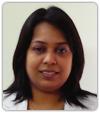Brief Answer:
No underlying disorder, but
alcohol withdrawal.
Detailed Answer:
Hi,
Welcome to Healthcare Magic!
What you are experiencing after a night of
binge drinking are a manifestation of alcohol withdrawal. Many people believe that withdrawal occurs only after regular drinking for years, but it is not so. Even after binge drinking, withdrawal is seen and is commonly called "hangover" which is just a mild form of alcohol withdrawal. In many people, the severity of
withdrawal symptoms increases after repeated withdrawal episodes and this exacerbation is attributed to a kindling process which sensitizes the brain. That is why, you are gradually seeing a worsening of symptoms after each successive binge drinking episode.
During the binge-drinking episode, the body, particularly the brain, adapts to the presence of alcohol by compensating for alcohol’s effect on the
central nervous system (CNS). Alcohol has an overall suppressing effect on CNS activity. Accordingly, the adaptation process involves several mechanisms to increase the excitability of nerve cells (i.e., neurons) in the brain—that is, their ability to become activated in response to signals from other neurons. When alcohol is eliminated from the body during abstinence, this compensatory activation of the CNS remains in effect for several more days, resulting in excessive excitability of the CNS (i.e., hyperexcitability). This hyperexcitability manifests itself as alcohol withdrawal, with symptoms ranging from anxiety,
palpitation, tremors and agitation to even seizures and
delirium tremens.
While these symptoms that you are experiencing do not indicate the presence of any underlying disorder, heavy alcohol intake is known to affect the liver, gastro-intestinal system and the heart in addition to the brain. So if you inform the doctor about your alcohol drinking pattern, he will himself ensure that all required tests are done.
Alcohol may also have a role in your
Generalized Anxiety Disorder (GAD) and you will see a benefit in GAD as well if you can give up alcohol. Alcohol induced anxiety disorders are very common.
I hope this answers your query. Please feel free to ask if you need any clarifications. Please also remember that successive binge drinking episodes may be followed by seizures or delirium tremens.
Best wishes.
Dr Preeti Parakh
MD Psychiatry







